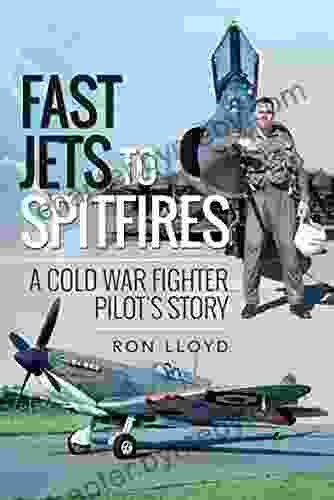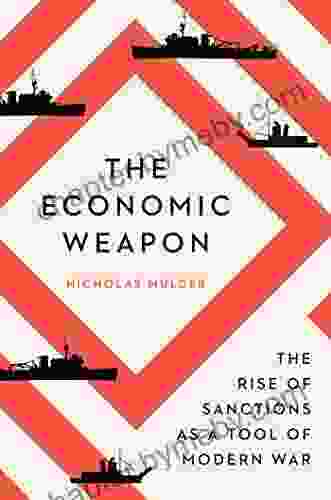The Rise of Sanctions as a Tool of Modern War: Unraveling Economic Coercion in the 21st Century

In the complex geopolitical landscape of the 21st century, economic sanctions have emerged as a formidable weapon in the arsenal of modern warfare. Unlike traditional kinetic conflicts, sanctions aim to cripple an adversary's economy through diplomatic and financial pressure. This article delves into the growing significance of sanctions as a tool of modern warfare, exploring their multifaceted impact, potential consequences, and the ethical considerations that surround their use.
The concept of economic sanctions can be traced back to ancient times, when trade embargoes were imposed to weaken rival nations. However, the systematic use of sanctions as a diplomatic tool gained prominence in the aftermath of World War II. The United Nations Charter authorized the Security Council to impose sanctions on states that posed a threat to international peace and security.
Over the decades, sanctions have become increasingly sophisticated, targeting specific sectors or individuals rather than entire economies. The rise of globalization has further amplified their impact, as modern economies are deeply interconnected through trade and financial networks.
4.2 out of 5
| Language | : | English |
| File size | : | 5512 KB |
| Text-to-Speech | : | Enabled |
| Screen Reader | : | Supported |
| Enhanced typesetting | : | Enabled |
| X-Ray | : | Enabled |
| Word Wise | : | Enabled |
| Print length | : | 614 pages |
Sanctions can be broadly classified into two main categories:
1. Comprehensive Sanctions:
- Embargoes on trade, including imports and exports
- Blocking of financial assets and transactions
- Travel restrictions and asset freezes for individuals
2. Targeted Sanctions:
- Restrictions on specific sectors or industries
- Asset freezes and travel bans on individuals or entities
- Arms embargoes or technology transfer bans
The impact of sanctions can vary depending on their scope and duration. Comprehensive sanctions can severely disrupt a nation's economy, leading to shortages of essential goods, inflation, unemployment, and social unrest. Targeted sanctions, on the other hand, may have a more limited impact but can still undermine specific industries or individuals.
States employ sanctions with a range of strategic objectives, including:
1. Deterrence:
- To dissuade a potential adversary from engaging in undesirable behavior
2. Coercion:
- To force an adversary to alter its policies or actions
3. Punishment:
- To penalize a state for past actions or violations
4. Economic Isolation:
- To cut off an adversary from international trade and finance
While sanctions can be a powerful tool to achieve diplomatic goals, their use raises several ethical concerns.
1. Humanitarian Impact:
- Comprehensive sanctions can cause widespread suffering among civilians, particularly the most vulnerable populations.
2. Unintended Consequences:
- Sanctions may harm third-party countries or sectors not directly involved in the conflict.
3. Erosion of International Law:
- The unilateral imposition of sanctions without UN approval can undermine the rule of law and international stability.
4. Escalation of Conflict:
- Sanctions can lead to a cycle of retaliation and escalation, increasing the risk of armed conflict.
1. Iran Sanctions (2006-Present):
- Imposed by the United States and its allies in response to Iran's nuclear program
- Targeted Iran's oil exports, financial system, and key industries
- Contributed to Iran's economic recession but did not halt its nuclear development
2. Russia Sanctions (2014-Present):
- Western sanctions imposed after Russia's annexation of Crimea and its involvement in the Ukrainian conflict
- Targeted Russia's energy sector, banks, and individuals
- Damaged Russia's economy but failed to deter its actions in Ukraine
3. North Korea Sanctions (2006-Present):
- Imposed by the UN Security Council in response to North Korea's nuclear and missile tests
- Targeted North Korea's trade, finance, and access to critical technologies
- Limited impact on North Korea's economy due to its isolation and reliance on illicit activities
The rise of sanctions as a tool of modern warfare reflects the changing nature of conflict in the 21st century. While sanctions can be an effective diplomatic tool, their use must be carefully considered to mitigate negative humanitarian and unintended consequences. The ethical dilemmas and potential risks associated with sanctions require ongoing dialogue and international cooperation to ensure their responsible and effective use in maintaining global peace and stability.
"The Rise of Sanctions As Tool of Modern War" provides a comprehensive analysis of this critical issue facing the international community. Free Download your copy today to gain a deeper understanding of the strategic, economic, and ethical implications of sanctions in modern warfare.
4.2 out of 5
| Language | : | English |
| File size | : | 5512 KB |
| Text-to-Speech | : | Enabled |
| Screen Reader | : | Supported |
| Enhanced typesetting | : | Enabled |
| X-Ray | : | Enabled |
| Word Wise | : | Enabled |
| Print length | : | 614 pages |
Do you want to contribute by writing guest posts on this blog?
Please contact us and send us a resume of previous articles that you have written.
 Book
Book Novel
Novel Page
Page Chapter
Chapter Text
Text Story
Story Genre
Genre Reader
Reader Library
Library Paperback
Paperback E-book
E-book Magazine
Magazine Newspaper
Newspaper Paragraph
Paragraph Sentence
Sentence Bookmark
Bookmark Shelf
Shelf Glossary
Glossary Bibliography
Bibliography Foreword
Foreword Preface
Preface Synopsis
Synopsis Annotation
Annotation Footnote
Footnote Manuscript
Manuscript Scroll
Scroll Codex
Codex Tome
Tome Bestseller
Bestseller Classics
Classics Library card
Library card Narrative
Narrative Biography
Biography Autobiography
Autobiography Memoir
Memoir Reference
Reference Encyclopedia
Encyclopedia Wendy Mak
Wendy Mak Noah Wilson
Noah Wilson Michael J Arlen
Michael J Arlen Pittacus Lore
Pittacus Lore Michael Hurley
Michael Hurley Michelle Hercules
Michelle Hercules Martin S Roden
Martin S Roden Meg Cannistra
Meg Cannistra Shahla Haeri
Shahla Haeri Marsha S Bordner
Marsha S Bordner Scott Haines
Scott Haines Mary Johnson
Mary Johnson Paul Abell
Paul Abell Mary Basick
Mary Basick Michel Callon
Michel Callon Milli Hill
Milli Hill Michele Pw Pariza Wacek
Michele Pw Pariza Wacek R T Stewart
R T Stewart Martha C Nussbaum
Martha C Nussbaum Fran Manushkin
Fran Manushkin
Light bulbAdvertise smarter! Our strategic ad space ensures maximum exposure. Reserve your spot today!

 Douglas PowellLife Above 7000 Feet in Wyoming: A Photographer's Journey into the Wind River...
Douglas PowellLife Above 7000 Feet in Wyoming: A Photographer's Journey into the Wind River...
 Dakota PowellThe White Donkey: Terminal Lance - A Semper Fi Tale of War, Honor, and Coming...
Dakota PowellThe White Donkey: Terminal Lance - A Semper Fi Tale of War, Honor, and Coming... F. Scott FitzgeraldFollow ·2.9k
F. Scott FitzgeraldFollow ·2.9k Jaime MitchellFollow ·19.8k
Jaime MitchellFollow ·19.8k Dillon HayesFollow ·3.7k
Dillon HayesFollow ·3.7k Salman RushdieFollow ·13.8k
Salman RushdieFollow ·13.8k Eric HayesFollow ·18.1k
Eric HayesFollow ·18.1k Douglas AdamsFollow ·4.8k
Douglas AdamsFollow ·4.8k Louis HayesFollow ·12.5k
Louis HayesFollow ·12.5k Griffin MitchellFollow ·6.1k
Griffin MitchellFollow ·6.1k

 Henry James
Henry JamesCold War Fighter Pilot Story: A Captivating Tale of...
Enter the Cockpit of...

 Rudyard Kipling
Rudyard KiplingYour Body Your Baby Your Choices: The Essential Guide to...
Pregnancy and...

 Fabian Mitchell
Fabian MitchellMichelle Obama: An Intimate Portrait - A Must-Read for...
Michelle Obama is a prominent figure in...

 Juan Butler
Juan ButlerUncover the Secrets of the Dead Land Warshawski Novels
Prepare to delve...
4.2 out of 5
| Language | : | English |
| File size | : | 5512 KB |
| Text-to-Speech | : | Enabled |
| Screen Reader | : | Supported |
| Enhanced typesetting | : | Enabled |
| X-Ray | : | Enabled |
| Word Wise | : | Enabled |
| Print length | : | 614 pages |










